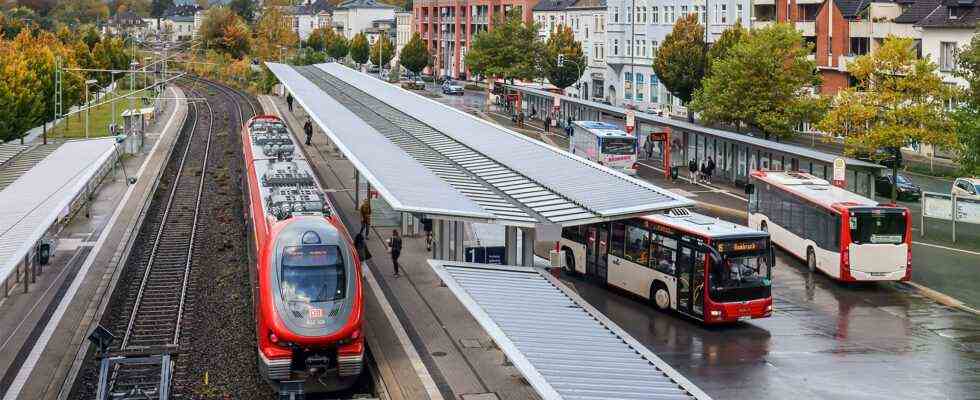Status: 02.11.2021 11:16 a.m.
If you want to switch from the car to local public transport in view of the expensive fuel, you have to be prepared for rising costs there too. Many providers are planning higher ticket prices at the turn of the year.
Millions of users of local transport in Germany have to be prepared for higher costs for journeys by buses and trains. At the turn of the year, many transport associations want to raise their ticket prices. However, the surcharges vary greatly from region to region.
“That makes nobody happy,” said the Hamburger Verkehrsverbund (HVV) about the upcoming price increase in the Hanseatic city. At the same time, the association referred to general inflation. Only part of the higher costs is passed on to the passengers – the much larger part is taken over by the tax office. Hamburgers are expected to pay an average of 1.3 percent more from the turn of the year. The surcharge would have been considerably higher if the HVV hadn’t received many millions from the city’s treasury. According to NDR The grant this year is 200 million euros, three times as high as last year.
In metropolitan areas between 1.5 and 5.5 percent surcharge
As an evaluation of the upcoming price round by the German press agency has shown, other local transport companies are planning far greater price increases. Depending on the transport association, the average tariff increases by up to 5.5 percent.
One of the frontrunners is the transport association for the greater Nuremberg area. In the VGN, however, the tariffs are rising for the first time in three years, the transport company justifies the increase by an average of 5.5 percent. Thanks to grants from the city, even the tariffs in Nuremberg remain stable again.
In Munich and the surrounding area, 3.7 percent will be added to the ticket price by mid-December. In Stuttgart and the surrounding area it will be 2.5 percent more expensive. In the Verkehrsverbund Rhein-Ruhr, the most populous in Germany, the tariffs rise somewhat more slowly at 1.7 percent. It is 1.5 percent in the neighboring Rhein-Sieg- and Rhein-Main-Verkehrsverbund, which includes large parts of Hesse.
Loss of income and higher costs
“The corona pandemic brought us enormous revenue shortfalls,” says Munich, for example. Many transport companies also have to pass on higher energy prices to customers or finance new transport offers through rising tariffs.
Bremen and its environs in Lower Saxony are taking the opposite route, but nothing has changed in Berlin and Brandenburg either. Prices there remain stable – also in order to attract more passengers to local transport in the face of rising fuel prices.
Long-distance rail traffic will be more expensive from December
For long-distance traffic, Deutsche Bahn announced at the beginning of October that it would be more expensive for customers: From December 12th, prices will rise by an average of 1.9 percent. This is the highest surcharge since 2012. Tickets for the timetable change will also be more expensive in regional traffic.
For drivers, the costs have risen much faster recently. According to ADAC, the diesel price reached a new record high of around 1.56 euros per liter at the end of October. Gasoline prices are around 1.70 euros per liter, close to their highest level so far in 2012. Rising energy prices are also a driver of general inflation. According to the Federal Statistical Office, the inflation rate reached 4.5 percent in October, its highest level in 28 years.

